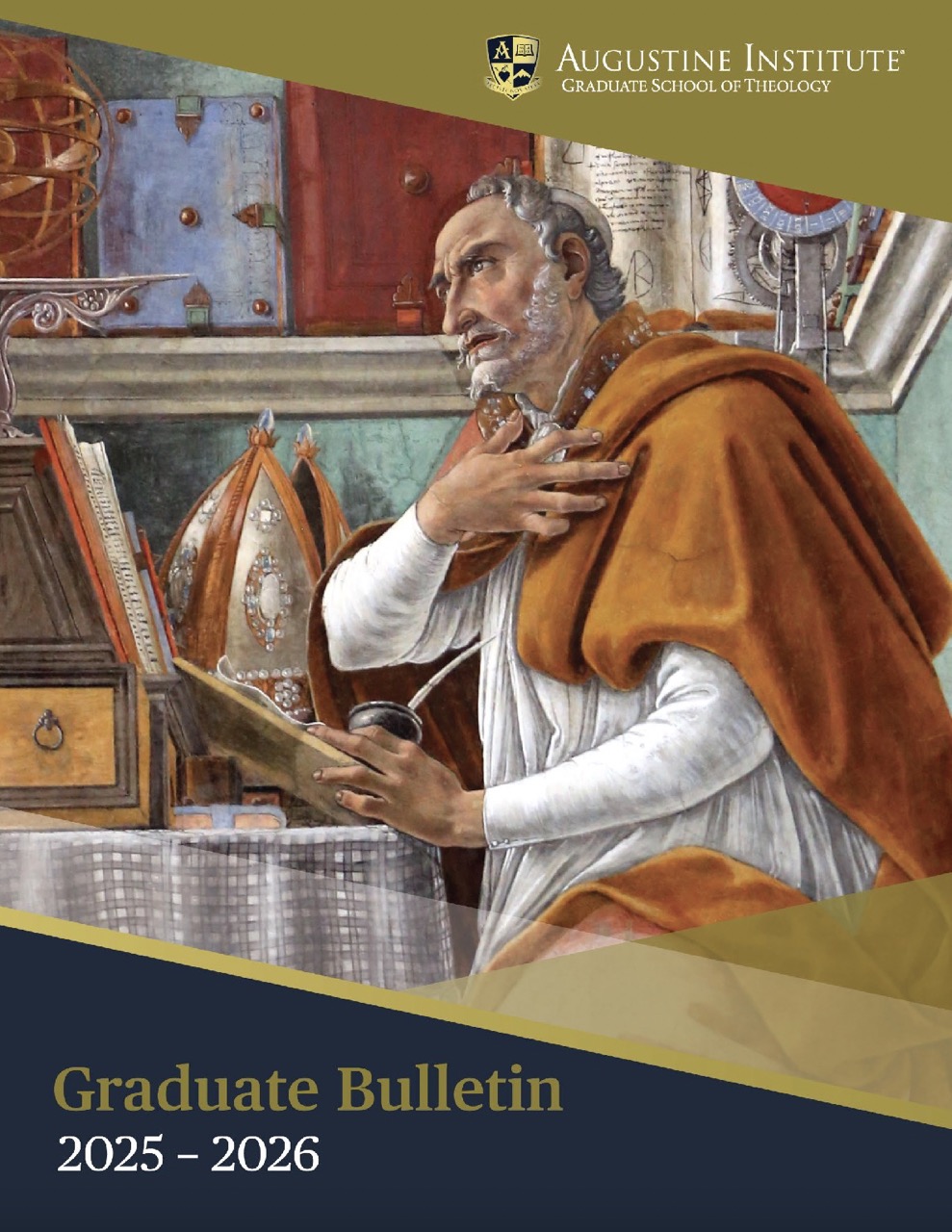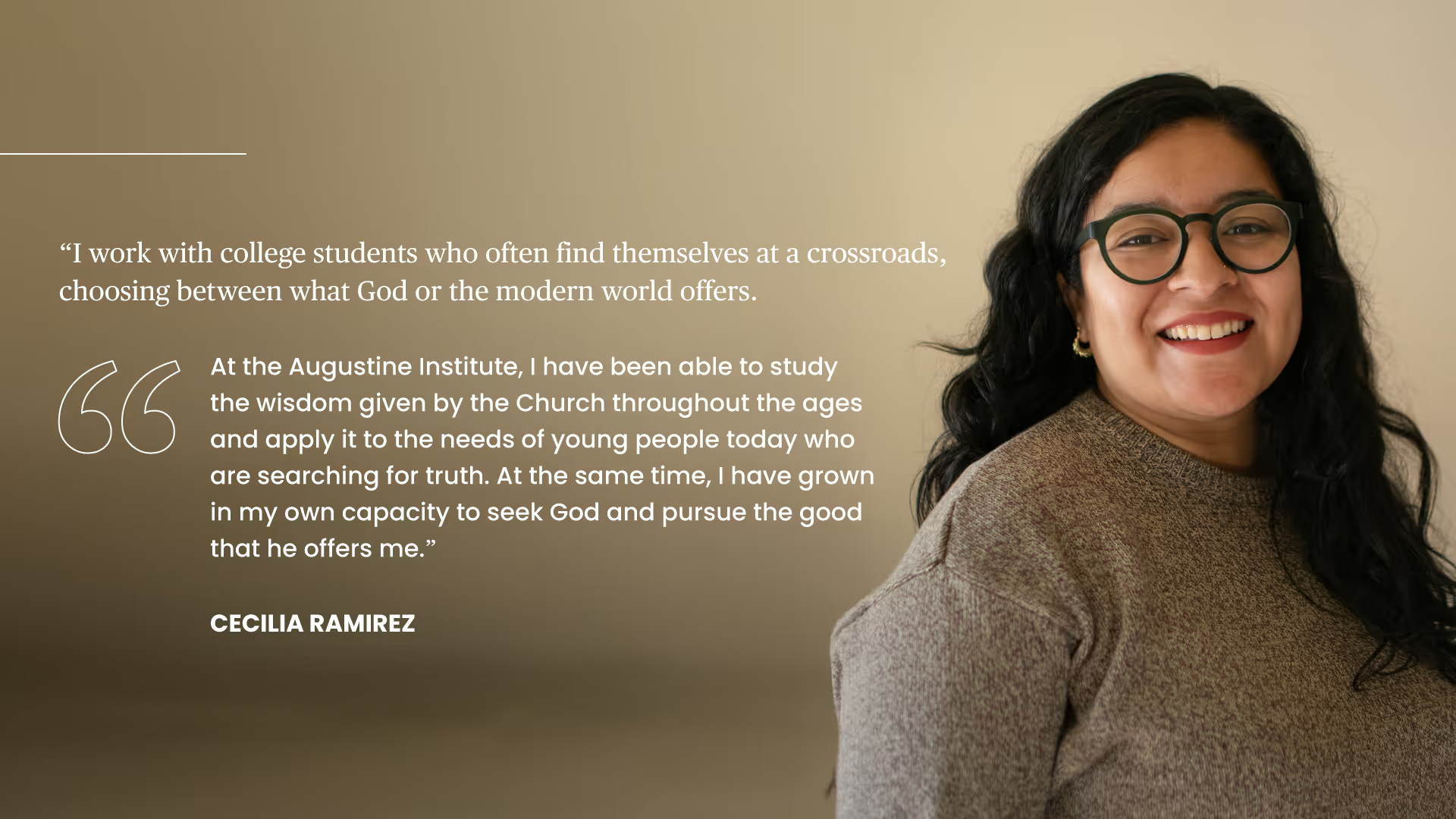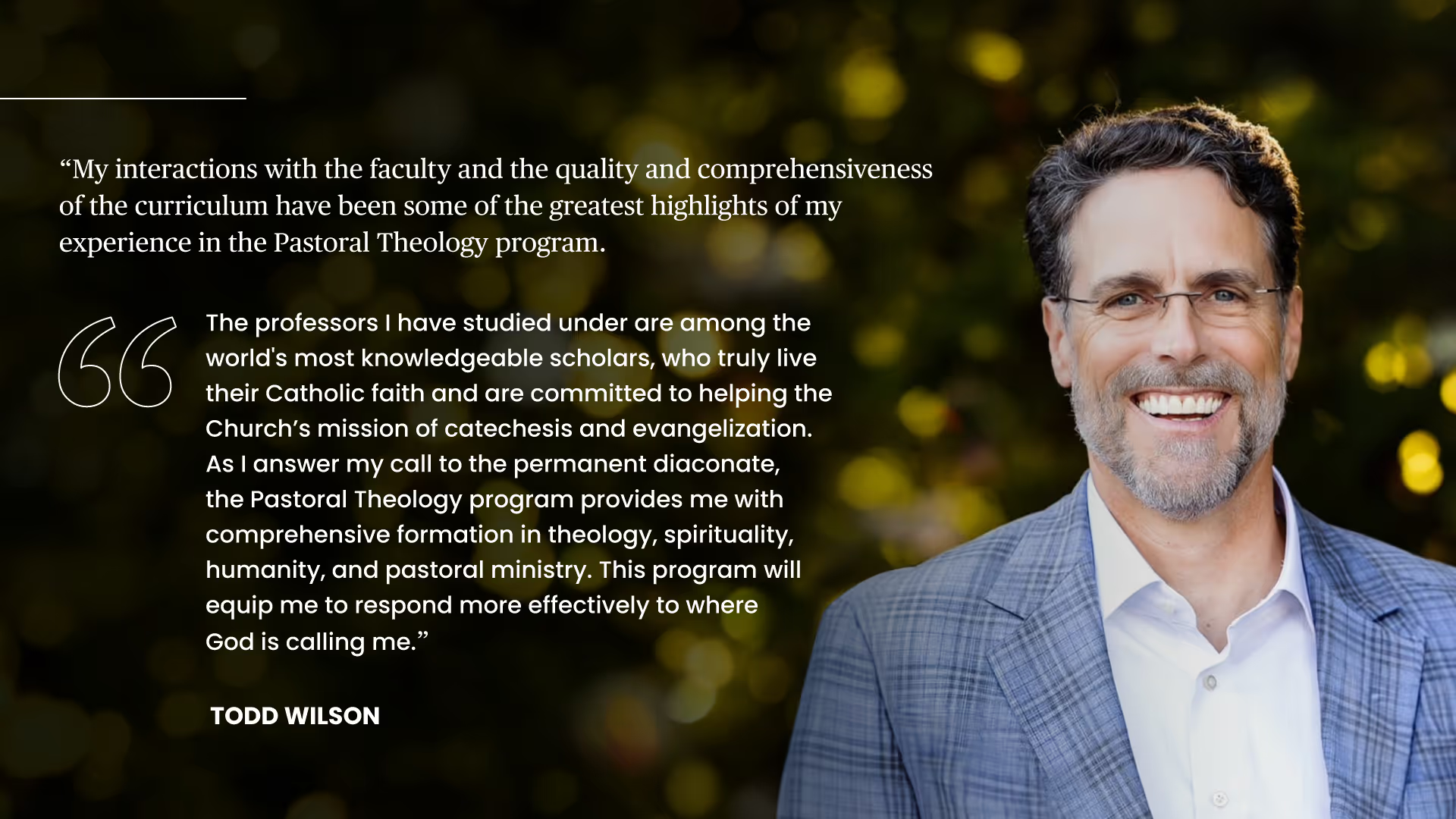Programmatic Goals
I. Theology: to demonstrate a foundational knowledge of the Catholic Church’s dogmatic, sacramental, moral, and spiritual teaching, building upon that doctrine as exemplified by the Catechism of the Catholic Church. Graduates will be able to analyze, explain, and where relevant defend the following elements of understanding:
- The Catechism of the Catholic Church offers “an organic presentation of the Catholic faith in its entirety” (CCC 18) by means of which we can grow in knowledge and love of God;
- Theology is a pursuit of wisdom—using both faith and reason—by which we study God and His Revelation, and consider all things in relation to Him;
- The article of faith contained in the Nicene Creed are “lights along the path of faith” (CCC 89) which illumine one’s knowledge of the Triune God, His creation, and His plan of salvation;
- Old Testament types for the sacraments and Christ’s actions are to be understood within the “sacramental economy” by which the Church communicates “the fruits of Christ’s Paschal mystery in the celebration of the Church’s ‘sacramental’ liturgy” (CCC 1076);
- The vocation of man, created in the image and likeness of God (cf. Gen. 1:26), is to be made a new creation in Christ (cf. 2 Cor. 5:17) by living a virtuous and charitable life sustained by grace; and,
- “There is an organic connection between our spiritual life and the dogmas” (CCC 89) which invites the Christian to seek a life of friendship with God which is nourished by prayer.
II. Spiritual Interiority: recognizing that a mature Christian interior life is both a prerequisite to effective mission and the goal toward which that mission is oriented, as well as an essential part of the methodological structure of all catechetical practice, graduates will be able to explain and defend the following elements of understanding:
- The principal aim of the catechetical apostolate is the salvation of souls.
- The interior life takes precedence over apostolic work and is the soul thereof (Lk 6:12).
- As essential elements of the third and fourth “languages” of catechesis, liturgical and personal prayer are both ends and means of catechetical practice (GDC 85).
- The principal object of Christian meditation is the mystery of Christ (CCC 2708) which enables us to help others to see “the whole of God’s eternal design reaching fulfillment” in Him (CCC 426).
- The ritual steps and stages of the catechumenate express a paradigm of the Christian spiritual journey and the universal call to holiness (GDC 59, LG 5).
- The science of the saints both depends upon and perfects theological faith.
- A graced interior life enables Christians to act as witnesses to the Gospel by “a transmission of the faith in words and deeds” in “an act of justice that establishes the truth or makes it known” (CCC 2472, cf. EN 21-22, 41).
III. Pastoral, Evangelical & Catechetical: to demonstrate an understanding of the fundamental principles of evangelization and catechesis, as well as strategies of pastoral care and the ability to develop, to implement, and to assess effective evangelistic, catechetical, and pastoral initiatives in an ecclesial setting which respond to the leading challenges facing the Church’s mission today. Graduates will be able to analyze, explain, and where relevant defend the following elements of understanding:
- Evangelization is the constant and essential mission of the Church (Mt 28:18–20; Mk 16:15; CCC 738, 849);
- Evangelization proceeds by lived witness and proclamation (Lk 24:46–48; 1 Tim 4:11–13);
- The principal agent of evangelization is the Holy Spirit (Acts 1:8; CCC 852); and,
- Evangelization is oriented toward the incorporation of men and women into the life of the Body of Christ (Eph 4:1–16).
- The pastoral vision of the Second Vatican Council as the foundation for the New Evangelization (CCC 10);
- The leading principles of pastoral care in parishes, schools, and dioceses;
- The principles and methods of catechesis for the New Evangelization; and,
- How the Catechism of the Catholic Church is a model for their teaching (CCC 23–24).
IV. Leadership: to demonstrate readiness for collaborative work and management in the life of the Church so as to implement effective discipleship strategies. Graduates will demonstrate an articulate understanding of and principled commitment to the following elements:
- A Christ-centered ethic of leadership in service to others in the ecclesial setting (Lk 22:24–27).
- The virtues critical for leadership and for the formation of others (Col 3:12–17);
- Leadership that encourages and develops others in ecclesial service (2 Tim 2:1–2); and,
- Essential communication and administrative skills for effective organization and leadership in the ecclesial setting.









